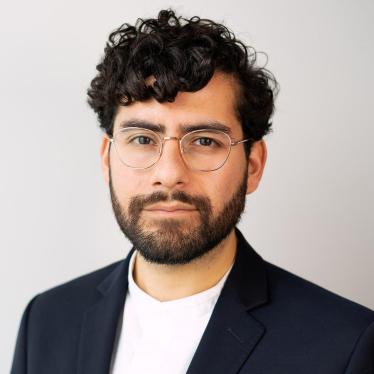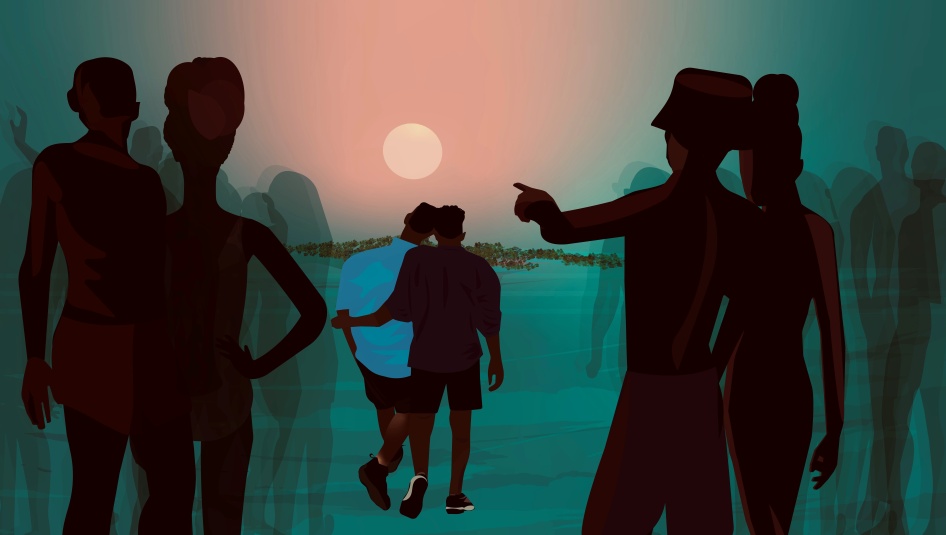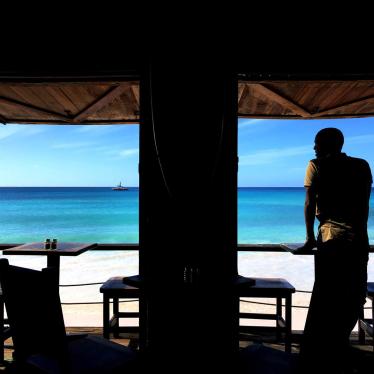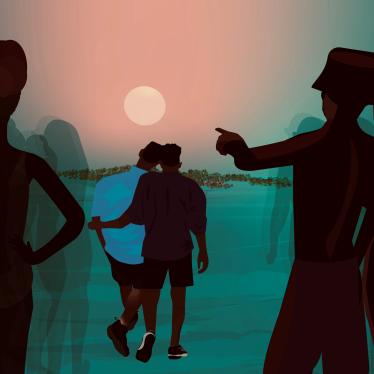In April, Dominica became the latest country to decriminalize consensual same-sex conduct. A local court ruled that provisions banning “buggery” and “serious indecency,” understood to criminalize gay sex, were unconstitutional. The ruling is historic for Dominica because it finally cast off a colonial legal relic that had been an obstacle to full equality for sexual and gender minorities. But beyond this Eastern Caribbean nation, the ruling has important implications.
The Dominica ruling adds to a growing body of jurisprudence from the “Global South” that challenges the notion that decriminalization of same-sex conduct is “foreign,” “Western,” or “against national values.” This idea, sometimes used by authorities in the 64 countries that still make such relations a criminal offense, often ignores the demands of many local activists and stakeholders. It is also often used to scapegoat sexual and gender minorities. But today such rhetoric flies in the face of well-reasoned, human rights-based decriminalization rulings arising from Latin America and Caribbean, Africa, and Asia and Oceania that firmly establish that the decriminalization of same-sex conduct is a universal human rights imperative.
Some of the very early cases on decriminalization were indeed from the “Global North.” The European Court of Human Rights ordered the decriminalization of same-sex intimacy in cases arising from the United Kingdom (1981), Ireland (1988), and Cyprus (1993). The United Nations Human Rights Committee ordered the same for Australia (1994). Yet, the bulk of national-level jurisprudence decriminalizing same-sex conduct has come from countries outside of these regions.
In Latin America, the Constitutional Court of Ecuador’s Case No. 111-97 TC (1997) was an early example of national jurisprudence ordering the decriminalization of same-sex conduct. There, the court found that “homosexuals are, above all, holders of all the rights of the human person and therefore have the right to exercise them in conditions of full equality.” In recent years, five other Caribbean nations have decriminalized in landmark rulings: Belize (2016), Trinidad and Tobago (2018), Antigua and Barbuda (2022), Saint Kitts and Nevis (2022), and Barbados (2023).
The case of National Coalition for Gay & Lesbian Equality & Others v. Ministry of Justice & Others (1998) in South Africa was the first to decriminalize same-sex relations on the African continent. A concurring opinion in the case affirmed that the case occurs “in the context of evolving human rights concepts throughout the world” and “should be seen as part of a growing acceptance of difference in an increasingly open and pluralistic South Africa.” Recent decisions in Botswana (2019) and Mauritius (2023) further solidified this trend.
Meanwhile, courts in Asia and Oceania, including Fiji (2005), Nepal (2007), Hong Kong (2007), and India (2018), have also affirmed that the criminalization of same-sex conduct violates fundamental human rights. In the Indian ruling, which came after a protracted legal fight, justices held that the “role of the Courts gains more importance when the rights which are affected belong to a class of persons or a minority group who have been deprived of even their basic rights since time immemorial.”
The contributions made by courts in these varied parts of the world confirm that the continued criminalization of gay sex is not a niche issue that is the domain of “the West.” The rulings are context-specific and highlight how criminalization infringes upon the rights of sexual and gender minorities and their communities, including the rights to non-discrimination, life and security, family, housing, health, work, and education, and freedoms of expression and assembly. While rulings are multifaceted, these diverse courts have generally found that criminalization is draconian and erodes the rule of law for everyone.
There have been some legal setbacks, such as Uganda’s Constitutional Court upholding the Anti-Homosexuality Act in April and the dismissal of a constitutional challenge to “buggery” and “gross indecency” laws in Saint Vincent and the Grenadines in February. But rulings upholding criminalization remain outliers, in part because of the strength and diversity of the decriminalization rulings. Findings such as that of the Uganda Constitutional Court, that legislators “know the sentiments of the people that they represent on the subject,” now appear painfully biased and myopic.
While courts play a crucial role, governments should not punt their legislative duties to the judiciary, especially since court cases can take years to litigate. Many governments around the world have passed legislation to decriminalize same-sex conduct, either explicitly to protect sexual minorities, or indirectly by implementing broader criminal law reforms. This has led to real progress. But what the rulings in a wide variety of countries make clear is that arguments about decriminalization being “Western imposed” are disingenuous and shield authorities from having to address substantive underlying human rights issues.
Instead of presenting straw-man arguments, authorities should stop using such rhetoric, heed the findings of courts around the word, and urgently recognize that the decriminalization of same-sex intimacy is essential for the equal advancement of human rights.
This essay is part of a series marking the 20th anniversary of the LGBT rights program at Human Rights Watch. The collection of articles explores the multifaceted challenges LGBT people face globally. Find them here.








